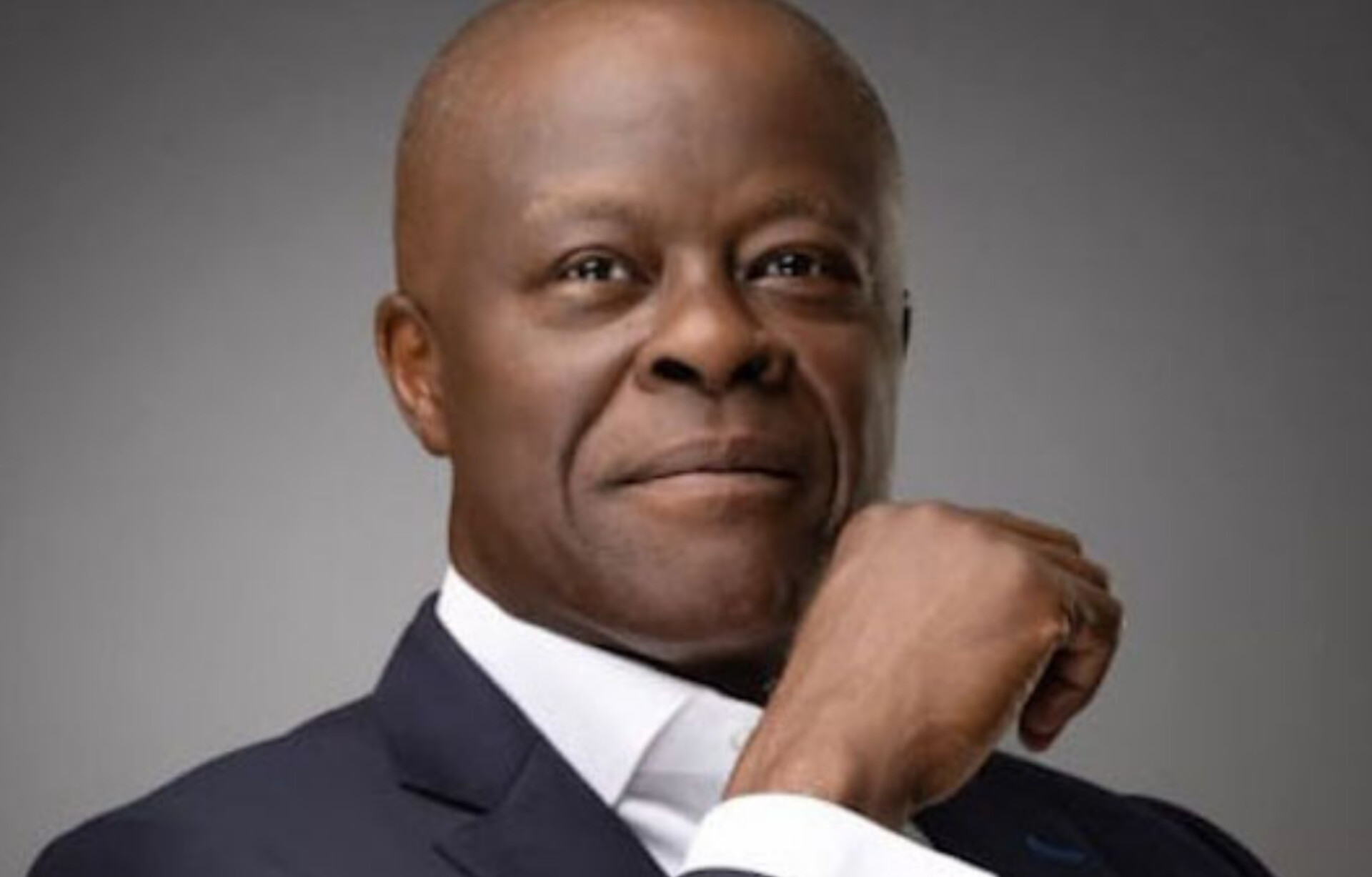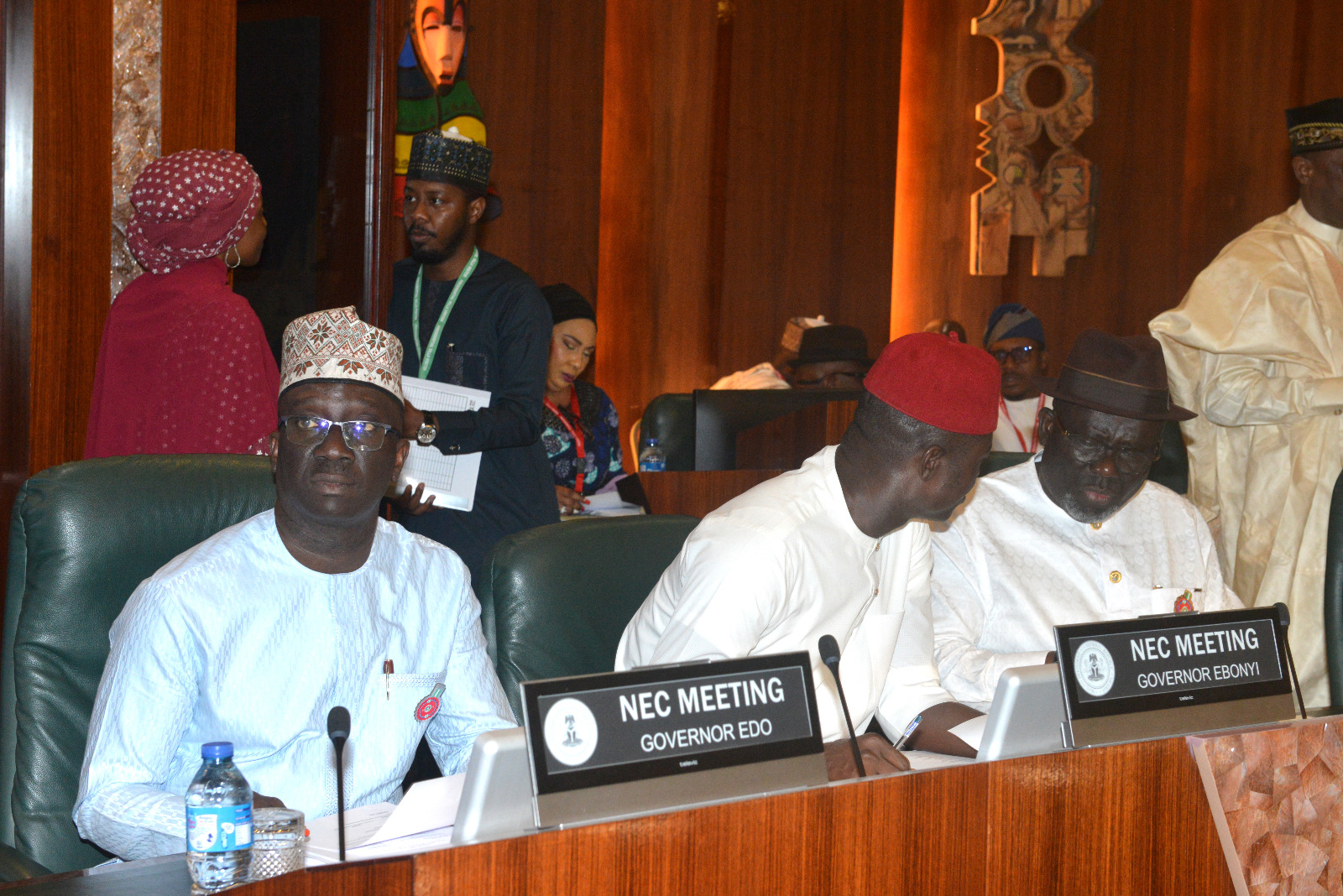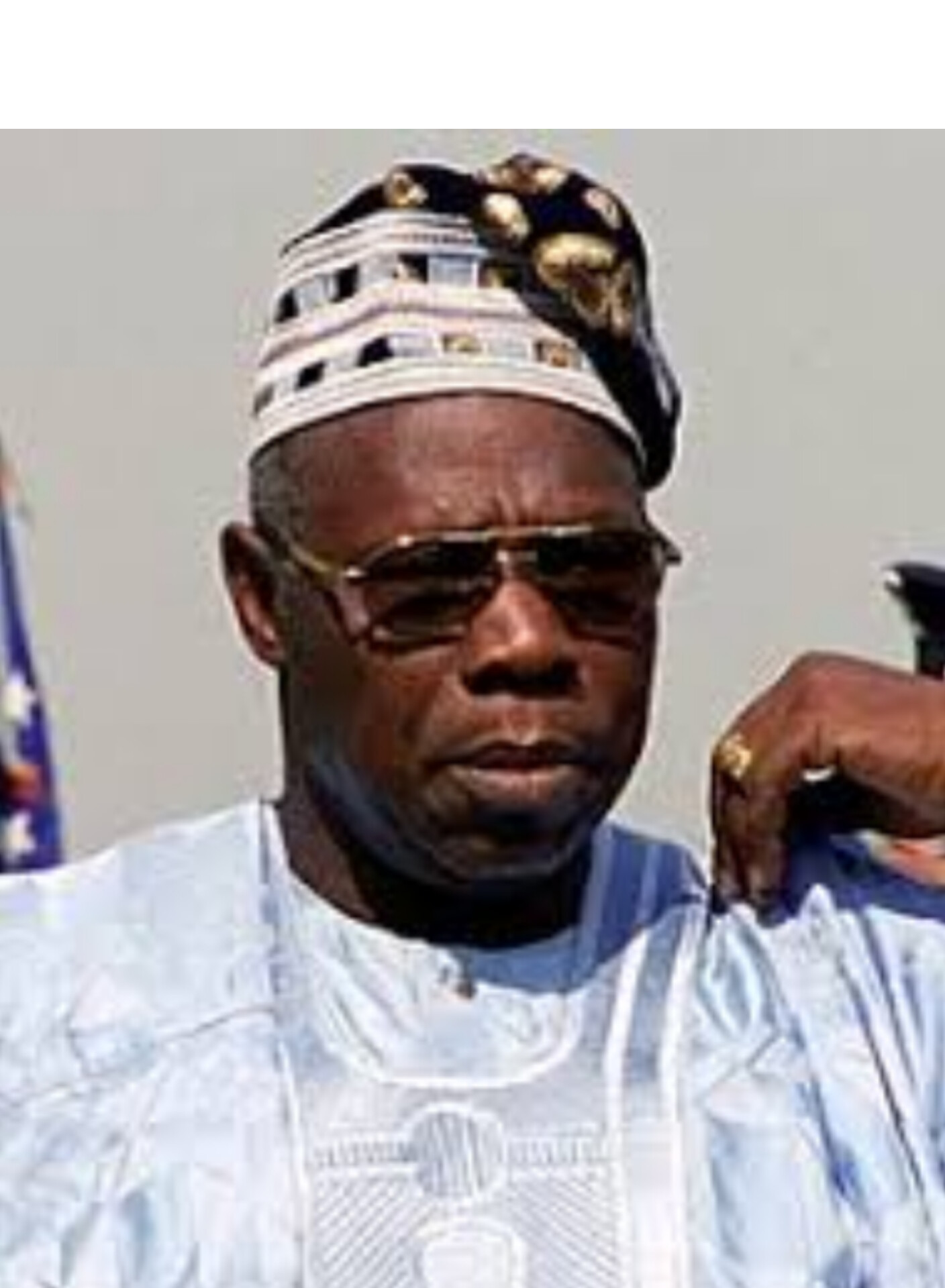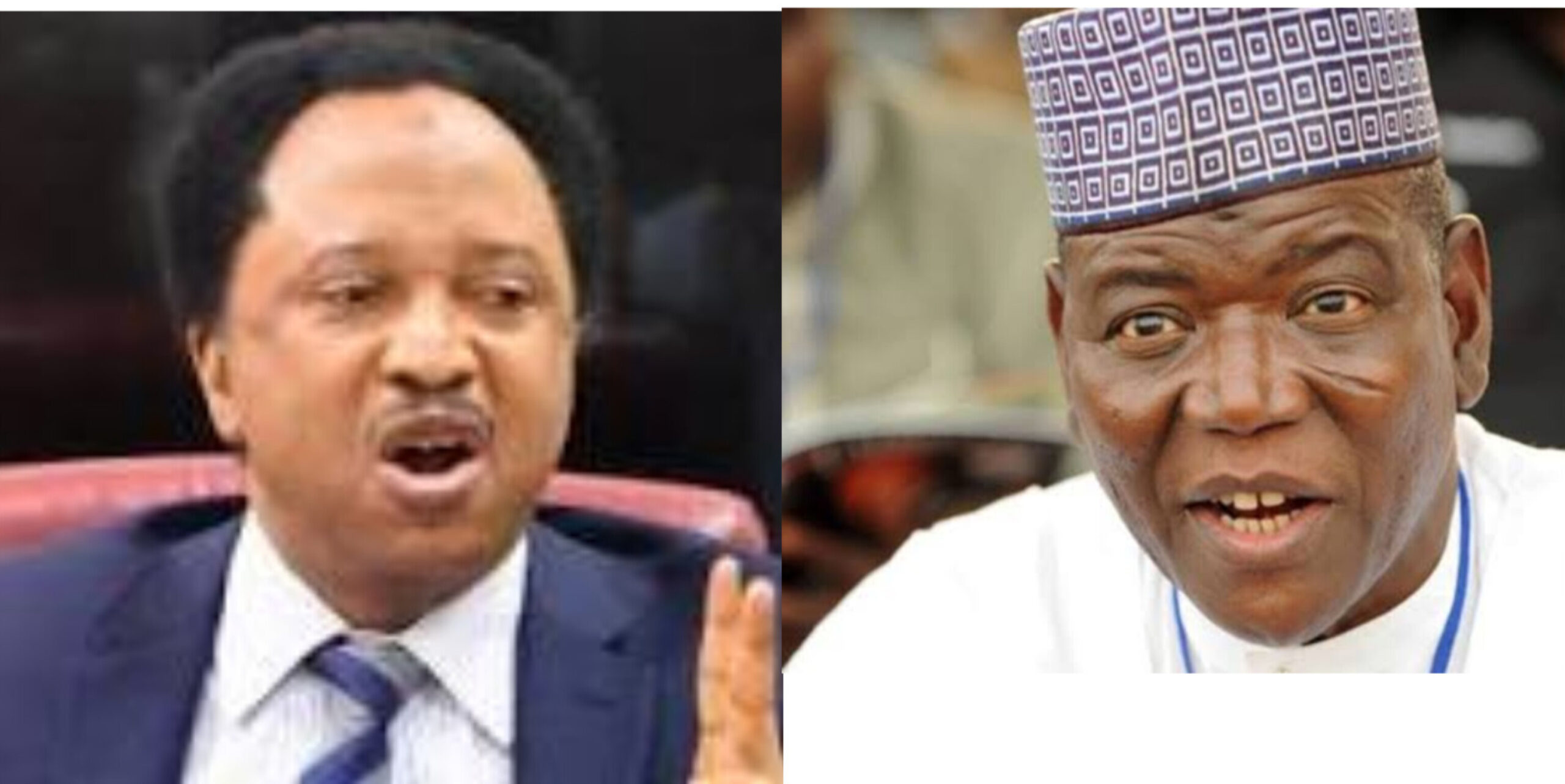National
MTEF-FSP: Finance Minister express worry overNigeria’s borrowing spree

****Says, adequate revenue needed to fund Budgets
***As Senate panel raises concerns over MDAs poor revenue projections, leakages
Nigeria can not continue in its borrowing habit to fund 2023 national budget, the Minister of Finance and Coordinating Minister for the Economy, Mr. Wale Edun has indicated
He said the country has no option but to make necessary sacrifices to generate adequate revenues to reduce its current high deficit financing.
The Minister spoke on Thursday when he appeared before the joint Senate Committee scrutinising the 2024-2026 Medium Term Expenditure Framework and Fiscal Strategy Paper under the leadership Senator Sani Musa.
Edun briefed the joint panel in company of the Executive Chairman, Federal Inland Revenue Service (FIRS), Mr. Zacch Adedeji and the Director General of the Debt Management Office, Ms. Patience Oniha, before the lawmakers called for a closed session.
The Minister insisted that the best way Nigeria could fund its annual budgets was to spend more money on infrastructure that could generate revenues.
He also indicated that the advanced countries have increased their interest rates because they wanted to bring down inflation rate to stabilize their economy.
The Minister pointed out that accessing foreign loans would therefore be very expensive for a developing country to cope with.
Edun said, “Clearly the environment that we have now, internationally as well as nationally we are in no position to rely on borrowing.
“We have an existing borrowing profile. Our direction of tariff is to reduce the quantum of borrowing or intercepting deficit financing in the 2024 budget.
“Simply put internationally there is focus among rich countries on bringing down the inflation rate to stabilize the economies and give them opportunity for investment growth.
“They are in the process, sacrificing that immediate goal for compacting their economies, or at least contracting the money supplies and pushing up the interest rates and of course high interest rates and investments don’t go together.
“What is left for us to access those funds are expensive so it is the last thing that we must rely on.
“As we know we have all the figures and debt servicing and cushioning 98 per cent of government revenue.
“The last thing you can think of is to pike on more debts. Government needs to not just maintain its activity, it needs to spend more.if you look at government spending, if you look at the budget as a percentage of GDP, ours is one of the lowest bein 10%, even Ghana is at 25%, rich ones they are 50%.
“The very rich countries have to be most advanced in terms of social safety nets and its social security system at 70% of GDP. Government spending definitely will lead to increase.
“The number one source of revenue especially in short term, even in the medium term is all revenue.”
Earlier, Musa, the Chairman of the joint panel scrutinising the MTEF-FSP document expressed the fears that the revenue projections of the ministries, departments and agencies of the federal government that had so far appeared before his panel were a far cry to the what the Federal Government was proposing as income in the 2024 fiscal year.
He noted that going for external interventions would definitely be an option because it would further push the country to further deficit financing.
Musa said, “Currently there are lots of leakages in the use of government resources.
“A lot of funds being generated as revenues by most MDAs are not being remitted as at when due. Some even remits funds a year after they collected the money.
“The office of the Accountant General of the Federation should look properly in that direction.
“The current practice of delaying the remittances of revenues by the MDAs had created a room for the misappropriation of those funds.
“After meeting with the Nigerian Customs Service officials yesterday, we realise that there were lots of shortfalls they are experiencing as a result of incidences of waivers.
“We want to know who is issuing those waivers. Is it the FIRS or the Ministry of Finance?
“We are also interested in knowing details of the Customs modernization project, known as e-customs.
“The Senate Committee on Finance is interested in known the type of agreement that was signed on behalf of the Federal Government of Nigeria.
“What is the value of the e-customs agreement. How much is Nigeria expecting?
“We are tired of judgement debts all over the places. We need to know the plans on ground to collect excise duties and other tariffs so that we won’t run a deficit budget again next year.”
National
Edo Governor Joins National Economic Deliberations

Edo State Governor, Senator Monday Okpebholo, attended his inaugural National Economic Council (NEC) meeting on Thursday at the State House Council Chambers in Abuja.
The session was presided over by Vice President Kashim Shettima.
The NEC serves as a vital forum for state governors, deputy governors, and the federal government’s economic team to discuss and address key economic challenges.
In a gesture to mark his first appearance, Governor Okpebholo was invited by Vice President Shettima to lead the opening prayer after the national anthem.
This event underscores Edo State’s active commitment to collaborating on national economic policies and driving solutions for Nigeria’s progress.
National
At Achebe Forum, Obasanjo Labels Nigeria a ‘Failing State’ Criticizes Tinubu’s Leadership

Former President Olusegun Obasanjo has expressed sharp criticism of President Bola Tinubu’s administration, stating that Nigeria’s decline is now evident to “every honest observer.”
Speaking at the Chinua Achebe Leadership Forum at Yale University in the U.S., Obasanjo attributed the country’s deteriorating state to leadership failure, pointing specifically to Tinubu’s governance, which he referred to as “Baba-go-slow and Emilokan.”
In his keynote address titled “Leadership Failure and State Capture in Nigeria,” Obasanjo highlighted that pervasive corruption and mismanagement have worsened Nigeria’s challenges, driving the country deeper into insecurity, division, and underdevelopment.
He quoted the late writer Chinua Achebe, who in his book The Trouble with Nigeria argued that the country’s fundamental problem is a failure of leadership, not a flaw in its people or resources. According to Obasanjo, this diagnosis remains as relevant today as it was over 40 years ago.
Obasanjo cited works by American experts Robert Rotberg and John Campbell, who have characterized Nigeria as a “failed state.” Their argument, he noted, suggests that Nigeria’s inability to maintain security and stability has serious implications for Africa and the world at large.
Additionally, the former President described “state capture” as a pressing issue in Nigeria, where powerful individuals and groups exploit government resources and policies for personal gain. Obasanjo argued that this corruption undermines national interests, with influential elites shaping the country’s legal and economic systems to benefit themselves. Such practices, he warned, compromise public welfare, affecting the quality of education, healthcare, and infrastructure development.
In reflecting on Achebe’s legacy, Obasanjo praised the late author’s commitment to truth and the moral foundation he established for Nigeria. He urged Nigerians and the international community to recognize the dangers of state capture and work towards restoring a governance model that prioritizes the public good.
National
Sule Lamido, Shehu sani disagree over National Security Adviser

The senator who represented Kaduna Central Senatorial District in the 8th National Assembly, Shehu Sani has disagreed with a former Governor of Jigawa State, Sule Lamido over national security issues
Lamido had taken a strong position against the current National Security Advisor (NSA), Nuhu Ribadu accusing him of compromising his professional integrity and acting more like a spokesperson for President Bola Tinubu than fulfilling his constitutional role.
Sani advised Lamido to at least appreciate how the Tinubu led Administration tackled insecurity instead of politicizing it in his comment on the National Security Adviser.
Ribadu who was basking in the euphoria of the recent claims of decimating the insurgents cautioned anyone “not to dare Tinubu”, espercially the new Lakurawa Insurgents a development which infuriated the former governor of Jigawa State and a Chieftain of the Peoples Democratic Party,(PDP), prompting him to take to his verified facebook wall to describe the NSA as “loquacious, flippant and qualified to have been Tinubu’s Minsiter of Information instead of NSA.”
Lamido Criticizes NSA for Sycophantic Behavior, Urges Focus on Duties.
Lamido in his comment had expressed concerns over the NSA’s behavior, particularly his past actions as the Chairman of the Economic and Financial Crimes Commission (EFCC) under President Olusegun Obasanjo. Lamido reminded Nigerians of the NSA’s controversial remarks, including his public labeling of prominent governors—such as Tinubu, Kalu, and Akume—as the “most corrupt.” Lamido pointed out the stark contradiction between the NSA’s earlier criticisms and his current position, serving under the same figures he once condemned.
The former governor called the NSA’s decision to join the administration of President Tinubu—a leader he previously described as corrupt—a “singular mistake,” one that Lamido believes has tarnished the NSA’s credibility and character. “You are not a spokesperson for the President, you are a National Security Advisor,” Lamido emphasized, urging the NSA to return to the professionalism that has historically defined the role.
Lamido argued that previous holders of the NSA position, including the late Umaru Shinkafi, General Gusau, and Colonel Dasuki, all displayed discipline and a low profile, focusing on security matters without resorting to public displays or sycophantic behavior. Lamido lamented that the current NSA’s behavior reflects a departure from this standard, pointing to his increasingly vocal and partisan approach.
Rather than fulfilling his duties as an anonymous and diligent security advisor, Lamido claimed that the NSA’s moral dilemma and excessive displays of loyalty to the president have shifted him into the role of a “Minister of Information,” undermining the neutrality and importance of his position.
In closing, Lamido urged President Tinubu to allow his NSA to regain focus, remove his fears, and return to the professional standards expected of someone in such a sensitive and critical role. The criticism continued to ignite debates about the role of the NSA and the expectations of public office holders in Nigeria, with many calling for greater transparency and consistency from those in power.
Reacting, Shehu Sani countered Lamido in a statement on Friday in Abuja, saying there should be a credit and a commendation for an administration that inherited multi-faceted security challenges ,but which has been reduced to the barest minimum, wondering how the elderly statesman failed to acknowledge the many triumphs of government in bandits hotbed regions in the north.
Sani who served in the upper legislative Chamber in the 8th National Assembly said, he witnessed to the appropriation budget allocated to security which unfortunately did not abate security challenges before now, expressing that Nuhu Ribadu has achieved what many of his predecessors have failed to accomplish despite the hundreds of billions spent in the name of defence and security in the past;
According to him, bandits have been neutralized to a large extent, thus encouraging government in this direction until total victory should have been ideal rather than playing haywire politics which he said may not help the yet-volatile situation in the North.
He said: “Neutralisation of top bandit leaders, end to mass abductions of students in northern schools,
“Securing rail lines and major northern highways hitherto notorious for kidnappings. The prompt response to terrorist attacks on power lines is worth mentioning.
“Security challenges are not over but in all indices of comparison, he has performed better and set unprecedented records. His political critics are fully entitled to their views ,but his delivery on his mandate is unparalleled.”, Sani concluded.
-

 Crime1 year ago
Crime1 year agoPolice nabs Killer of Varsity Lecturer in Niger
-

 News10 months ago
News10 months agoFCT-IRS tells socialite Aisha Achimugu not to forget to file her annual returns
-

 Appointment1 year ago
Appointment1 year agoTinubu names El-Rufai, Tope Fasua, others in New appointments
-

 News From Kogi1 year ago
News From Kogi1 year agoINEC cancells election in 67 polling units in Ogori-Magongo in Kogi
-

 News From Kogi1 year ago
News From Kogi1 year agoEchocho Challenges Tribunal Judgment ordering rerun in 94 polling units
-

 News1 year ago
News1 year agoIPOB: Simon Ekpa gives reason for seperatists clamour for Biafra
-

 Metro8 months ago
Metro8 months ago‘Listing Simon Ekpa among wanted persons by Nigeria military is rascality, intimidation’
-

 News10 months ago
News10 months agoKingmakers of Igu/ Koton-Karfe dare Bello, urge him to reverse deposition of Ohimege-Igu
